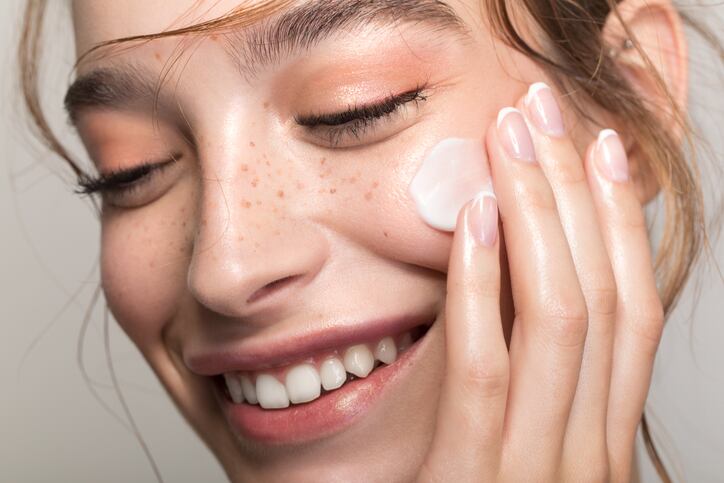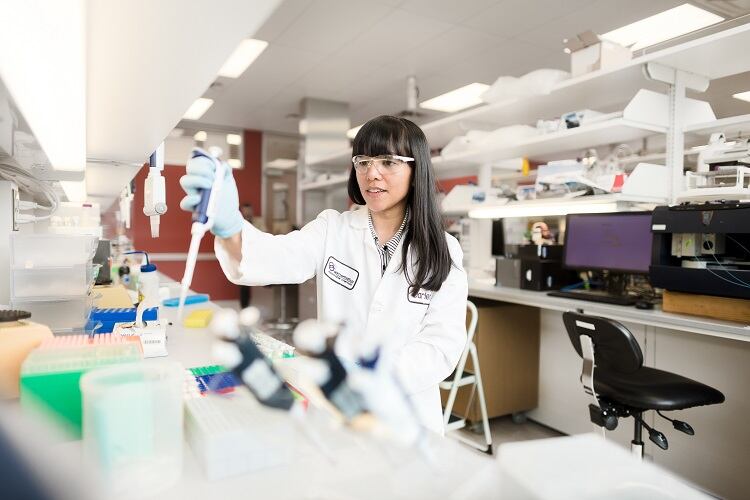In March this year, scientists from Unilever’s Research & Development arm published a study in Scientific Reports outlining how lotion containing skin-identical lipid precursors could be used to stimulate ceramide production in the skin, improving barrier function and thus alleviating dryness. Findings showed average ceramides levels increased by 33% after five weeks of application, improving not only visual skin dryness but also stratum corneum cohesivity and overall hydration.
The power of ‘skin-identical lipids'
Dr Barry Murphy, senior microbiome research manager at Unilever R&D and lead author of the study, said: “The ability of product application to improve the skin microbiome was a very exciting discovery.”
Speaking to CosmeticsDesign-Europe, a Unilever spokesperson said the full formulation, enriched with several "skin-identical lipids" such as palmitic and stearic acid, had been designed to deliver benefits across the skin, lipids and microbiome.
"These lipids occur naturally in the skin and are the inspiration for the identical lipids used in our products. Our research has shown how these lipids act as building blocks, enabling the natural process of skin ceramide production to occur," the company spokesperson said.
The formulation also incorporated glycerin - an ingredient Unilever scientists had previously demonstrated to be a prebiotic promoting the growth of beneficial skin bacteria. "We believe that it is the combination of glycerin and skin-identical lipids that results in the improved skin barrier. This in turn supports the growth of a healthy skin microbiome," they said.
Study findings also showed an increase in the level of Staphylococcus epidermidis, a bacterium shown to also play a key role in ceramide production on skin. "This suggests that the increase in ceramide production may result from both the formulation ingredients and its impact on the microbiome."
Dr Andrew Mayes, senior skin research manager at Unilever R&D and group research lead, added: “Through our research, we have not only discovered how the skin can be stimulated to maintain its own production of ceramides, but also that this production leads to a direct improvement in skin quality and hydration.”
“…We can now build stronger skin from within. By strengthening and rebuilding the skin’s functional moisture barrier, skin feels better, looks better, and is more resilient to the outside world,” Mayes said.
Microbiome NPD beyond body care
Unilever’s ceramide technology was already used in some of its skin care ranges, including in Vaseline’s total moisture lotion and Dove’s deeply nourishing body wash. The company said it now wanted to extend this technology to other areas of the business.
“This technology could soon lead to more targeted innovations across several brands,” Unilever said.
“New scalp, oral and underarm care products, for example, could be added to the growing number of personal care products already on the market.”
Michael Hoptroff, senior microbiome research manager at Unilever R&D, said there was certainly plenty of scope to expand use of this ceramide precursor technology when targeting the skin microbiome, particularly in light of the company’s latest study demonstrating skin hydration.
“This research has the potential to unlock the future of beauty and wellbeing and allow us to create a new generation of products underpinned by the best data and scientific knowledge in the world,” Hoptroff said.
The rise of microbiome tech
And there was a raft of advances being made in skin microbiome tech, he said, that would advance efforts further, especially in the area of analytical tools.
“This is an amazing time to be a microbiologist; advances in technology, bioinformatics and, increasingly, in AI [Artificial Intelligence], are unlocking new knowledge about the human microbiome every day,” he said.
And certain research partnerships had been pivotal to Unilever’s latest study, he said. Its work with UK-based Eagle Genomics, for example, meant it was using AI-powered microbiome data analysis, enabling the company to analyse “complex biological data” and study how “skin and its microbiome interact”, he said. Another method, developed in conjunction with the Chinese Academy of Science, used a microbiome network of individual (MNI) to analyse the effect of stressors.
Earlier this month, Hoptroff and other Unilever scientists spoke exclusively with CosmeticsDesign-Europe to brainstorm the future of microbiome beauty development, spotlighting how opportune the area was and the level of promise in life-stage targeted innovation and prebiotics. And Hoptroff said that as Unilever continued its NPD efforts in the skin microbiome space, the goal would be to bring these innovations to mass beauty; mainstream them.




